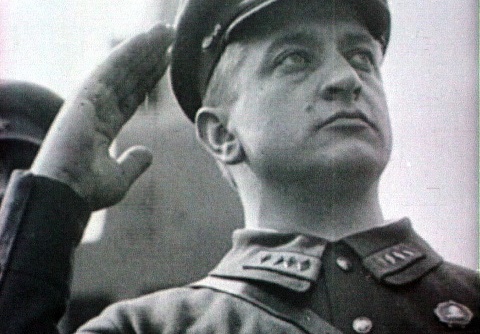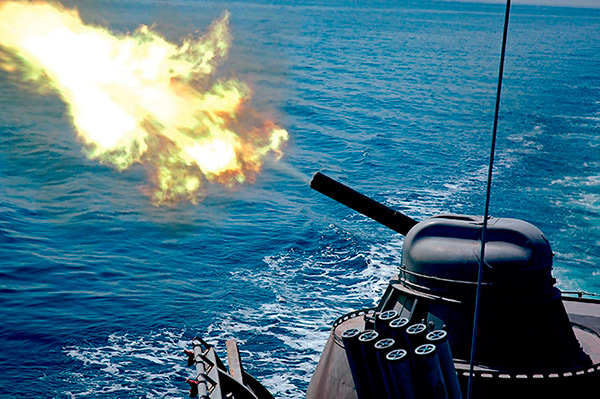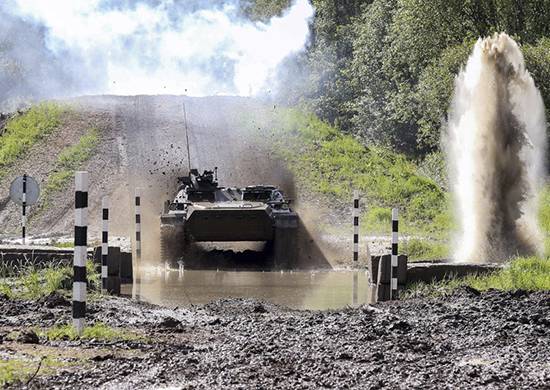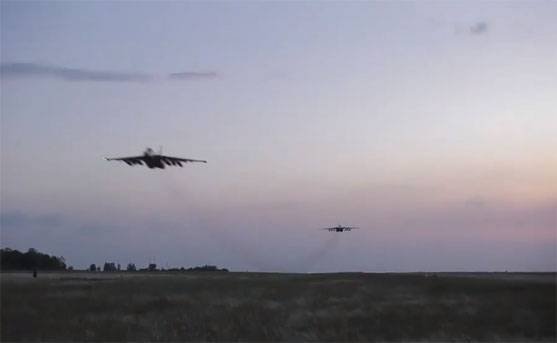
For a long time and often expressed the opinion that, that the Great Patriotic War would have been much easier for the USSR, if before the war there were no mass repressions against the highest command personnel of the Red Army. Maybe even, that the war would not have started: Hitler would not dare to attack. In assessing this effect of the Stalinist repressions, the majority of high-ranking Soviet military were in agreement, who commanded the Great Patriotic War: Marshals George Zhukov, Alexander Vasilevsky, Andrey Eremenko, Army General Alexander Gorbatov and others. Most historians share this assessment..
Repressed belonged to different groups
At the same time, Any suggestions, that repressed marshals Mikhail Tukhachevsky, Vasily Blucher, Alexander Egorov, the other annihilated warlords were not politically loyal to Stalin, which explains their destruction on the eve of the Second Great War. When, if they commanded the Red Army, then we would adjust her defeat in order to get rid of Stalin. In fact, this version is nothing more than a repetition of those accusations, who were incriminated to them by the Stalinist “court”. She has no evidence. But, of course, if this version is correct, then there is no alternative to the question of, how would the war be for the USSR.
However, we will proceed from other considerations and consider, first of all, the views of the most significant Soviet military theorist of those years - Mikhail Tukhachevsky - on the nature of the future war and preparation for it. We will also consider, that these views would become guiding for the high command of the Red Army. supposing, that the military leadership did not intervene in resolving political issues and would be engaged in training the army, and foreign policy events 1941 year so, like in reality.
Among the repressed military leaders, the views and activities of Tukhachevsky are of the greatest importance.. is he, undoubtedly, stands out from all repressed as the most intellectual value. Let us leave aside the analysis of political groups within the military elite. obviously, eg, that two other marshals destroyed, in addition to Tukhachevsky - Blucher and Egorov - were not included in the Tukhachevsky group. Blucher participated in the trial of Tukhachevsky and his accomplices in the "fascist military conspiracy", and his signature is under a death sentence. Egorov was appointed first deputy people's commissar of defense in place of the arrested Tukhachevsky, and he was arrested only ten months later. so, confine ourselves to issues of strategy and army building.
Repressions little effect on the doctrine of the Red Army
first, what catches the eye when comparing the texts of the works of Tukhachevsky and those documents, which guided the Red Army after his death - they are almost identical in meaning. And to, and after the death of Tukhachevsky, the Red Army was preparing for an offensive war against the imperialists on their territory. And under Tukhachevsky, and after him the Red Army was saturated with mechanized means of struggle.
Statement, as if Tukhachevsky and other shots were all supporters of mechanization (all the more - as if they were repressed for such views), and their opponents (Voroshilov, Budyonny, etc.) stood behind the konarmia during the civil war and did not understand the importance of technology in modern warfare - an unfounded myth.
Field Charter of the Red Army 1936 of the year, which was developed and adopted with the active participation of Tukhachevsky as the first deputy people's commissar of defense (Voroshilov), remained the main governing document of the Red Army until the start of World War II. AT 1939 In the year the draft of the new Field Charter was prepared., however, they did not have time to consider and accept it. However, there was nothing in it either, contrary to the views of Tukhachevsky.
The central place in the views of Tukhachevsky on the nature of the future war was the idea of a swift offensive with the maximum use of technical means: aviation, tanks, artillery. Tukhachevsky divided the tanks into two types: direct support for infantry and long-range. If the first were to participate in breaking through the enemy’s defense line, then the second - to capture objects in its rear, disrupt his communications and lines of communication, sow panic and disorganization of the enemy.
Tukhachevsky's leadership, probably, would have led the Red Army to defeat
Consequence of these views even before 1937 the year became the saturation of the Red Army with infantry tanks T-26 and light fast tanks BT. Also in 1930 in the year Tukhachevsky presented to Stalin a completely utopian project on the production of one hundred thousand tanks a year in the USSR. Tukhachevsky did not consider tanks a means of battle, primarily with enemy tanks, as German theorists of tank blitzkrieg Guderian did, Done, French General de Gaulle et al. The T-34 tank did not fit into its concept and can be assumed, that Tukhachevsky would have opposed his adoption.
Tukhachevsky’s ideas about a quick breakthrough could be feasible only in the absence of a solid front, which contradicted the experience of the First World War. Only in 1936 year in work, dedicated to the Field Charter of the Red Army, he admitted, that in the future war continuous positional fronts are possible and attached great importance to their breakthrough using a large number of artillery and tanks of direct support. But he did not refuse the idea of long-range tanks.
At the same time, Tukhachevsky was a supporter of the landing of tankettes from the air behind enemy lines using gliders and “air trains”. As experience of the Great Patriotic War showed, it was a harmful utopia. Tukhachevsky was an opponent of specialized artillery, counting, that the same guns should hit both ground targets, so on airplanes. He also insisted on the rearmament of the entire recoilless army (dynamo reactive) artillery. It is too, It turned out, was utopia.
The thesis of “little blood war on foreign territory” was not his, and Voroshilova. conversely, Tukhachevsky back in 1923 , he wrote, that the new war will be "not anemic, but cruel and bloody ", and it will be “led by the whole population”. In fact, he was a theorist of total war, and here, of course, was right, but not original.
At the same time, he rejected the meaning of active, rolling defense. conversely, advocated maximum saturation of the first line of defense and denied the need for rear reserves.
Easy to see, What consequences would the Tukhachevsky doctrine lead?, if they began to realize it on the eve of World War II. Almost the entire Red Army would then be surrounded and defeated in the very first border battles.
Yaroslav Butakov











